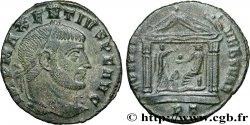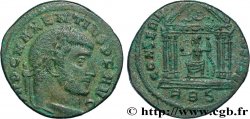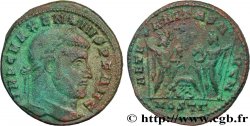brm_748173 - MAXENTIUS Follis ou nummus
Not available.
Item sold on our e-shop (2022)
Price : 100.00 €
Item sold on our e-shop (2022)
Price : 100.00 €
Type : Follis ou nummus
Date: janvier
Date: 309
Mint name / Town : Aquilée
Metal : copper
Diameter : 25,5 mm
Orientation dies : 12 h.
Weight : 6,51 g.
Rarity : R2
Officine: 3e
Coments on the condition:
Exemplaire centré. Joli revers. Patine marron, tachée au droit
Catalogue references :
Obverse
Obverse legend : IMP MAXENTIVS P F AVG CONS II.
Obverse description : Buste lauré consulaire de Maxence à droite, vêtu de la trabea, vu de trois quarts en avant, tenant le scipio de la main droite (H*4).
Obverse translation : “Imperator Maxentius Pius Felix Augustus Consul iterum”, (L'empereur Maxence pieux heureux auguste consul pour la deuxième fois).
Reverse
Reverse legend : CONSERV - VRB SVAE/ -|-// AQ.
Reverse description : Temple hexastyle de Rome posé sur trois marches avec un fronton triangulaire décoré d’une croisette ; au centre statue de Rome debout à gauche, tenant un globe de la main droite et un sceptre long de la main gauche.
Reverse legend : G.
Reverse translation : "Conservatores Urbis Suæ", (Les protecteurs de leur ville).
Commentary
Rubans de type 3 aux extrémités bouletées. Robe consulaire constituée de la toga picta et de la toga palmata richement décorée. La forme avec COS II (RIC. 126) semble plus rare que celle avec CONS II (RIC. 125) normalement épigraphiquement moins courante.







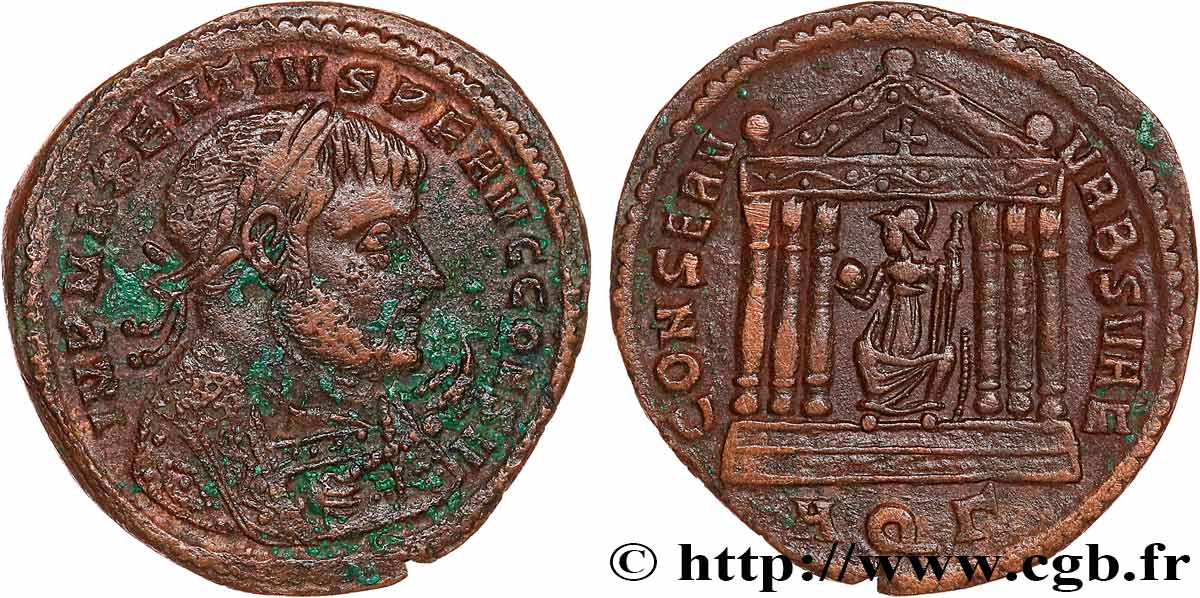
 Report a mistake
Report a mistake Print the page
Print the page Share my selection
Share my selection Ask a question
Ask a question Consign / sell
Consign / sell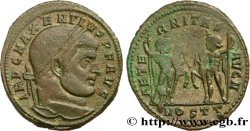
 Full data
Full data